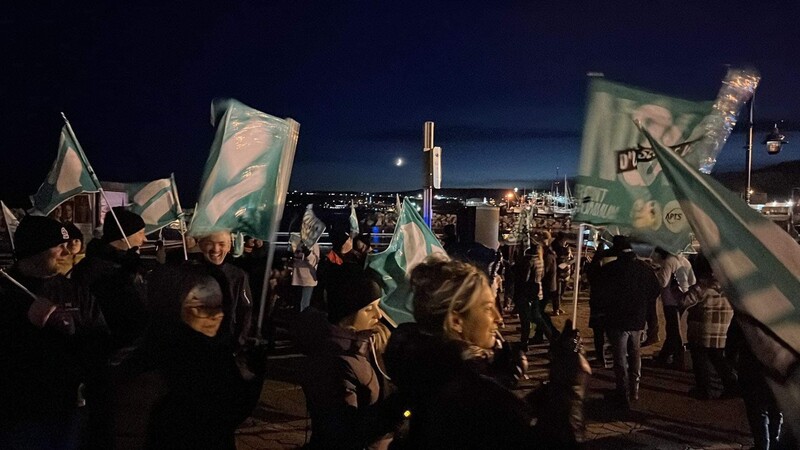A coalition of ~420,000 Québec public sector employees from four different unions, dubbed the Front Commun, are on the second leg of a three-day strike.
What happened: The strikers are a ragtag assemblage of fed-up public workers, including orderlies, hospital technicians, and the majority of high school and elementary teachers. This strike is the first of three public worker strikes set to hit Québec this week alone.
-
Tomorrow, FIQ, the union representing ~80,000 licensed nurses, respiratory therapists and clinical perfusionists, is set to begin a two-day strike.
-
More teachers will also hit the picket line. FAE, which represents ~65,000 teachers working at major Francophone school boards, is kicking off an indefinite strike.
Why it’s happening: Like many of us these days, Québec’s public sector workers are feeling burnt out and underpaid. The unions rejected an offer for a 10.3% salary increase over five years, instead demanding a three-year deal with increases pegged to inflation.
Why it matters: In a year full of labour action, Québec’s strikes could be the most militant. The province has the country’s second–highest unionization rate and, as one sociologist told CBC, "the strongest labour movement in North America" thanks to its strong labour heritage.
-
Unions in the province have a history of going hard to get what they want — the infamous 1972 general strike being the foremost example.
- The FAE has signalled its willingness to go as long as it takes, even if that means workers will go without strike pay, to secure a good deal.
What’s next: A conciliator has been brought in to facilitate contract negotiations between the Front Commun unions and the provincial government. We’ll see how that goes.—QH
